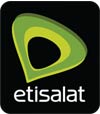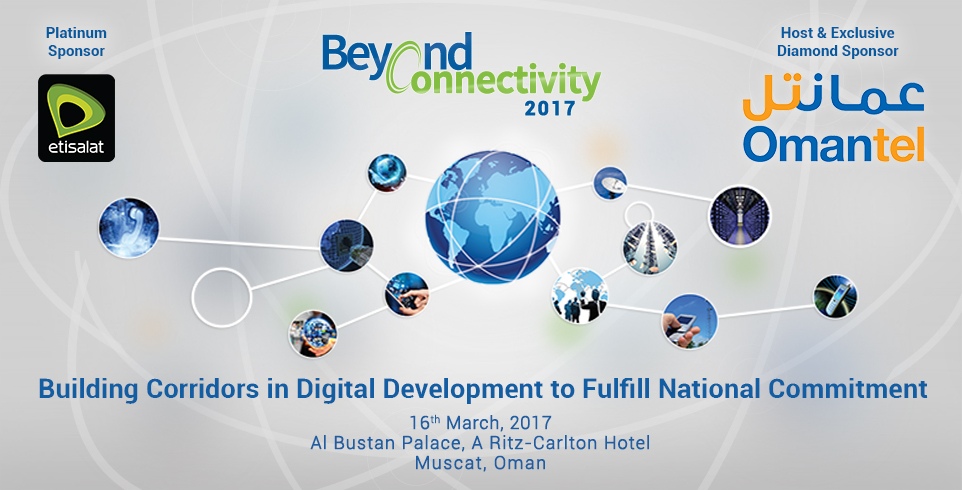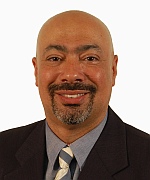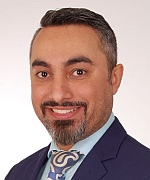Host & Exclusive
Diamond Sponsor

Platinum Sponsor

Partners


Media Partner

Press Partner

Meetings Archive

SAMENA Telecommunications Council’s Beyond Connectivity conference is an annual event, bringing together senior to top-executives from regulatory bodies, telecom operator groups, technology companies, as well as other ICT industry players, including management consulting companies.
The goal of Beyond Connectivity is to serve as a knowledge-sharing platform and to convene industry experts together, to discuss industry matters and business areas of interest to the industry, while providing a networking platform for the Council’s members. A key outcome of the discussions of the BYC conference has been the escalation of industry priorities and issues to the decision-making and policy-making tiers of the ICT industry, triggering further policy-level dialogue on key matters, with the involvement of both private and public sector stakeholders.
The BYC conference has also served companies as a platform for announcing business partnerships. Various members of SAMENA Telecommunications Council have also used the strategically themed BYC events to showcase their innovations, new products and services.
Opening and Introduction
Bocar A. BA
CEO
SAMENA Telecommunications Council
Chief Guest’s Address
H.E. Said Bin Hamdoon Al Harthy
Under Secretary for Ports and Maritimes Affairs
Ministry Of Transport & Communications
Guest of Honour’s Speech
H.E. Dr. Hamed Salim Al Rawahi
Executive President
TRA Oman
Welcome Note by Host
Sheikh Talal Said Marhoon Al Mamari
CEO
Omantel
Operator’s Perspective
Hatem Dowidar
CEO
Etisalat International
Andrea Faggiano
Partner
Arthur D. Little
Dr. Kamal Shehadi
Chief Legal & Regulatory Officer
Etisalat International
Adel Darwish
Head of International Relations
TRA Bahrain
Salim Bader Salim Al Mazrui
General Manager, Capacity & National Accounts
Omantel
Pankaj Asthaana
Digital Payments, Middle East & North Africa
MasterCar
TRA Oman
The sustainability challenge is among the biggest that the telecoms/ICT industry is facing. For each market, the facets of business sustainability are different, each defined by unique market dynamics, which include competition and how regulations are formulated and put into practice. However, given the commonality in challenges relating to sustainability, we need to approach the notion of sustainability from different angles. While doing so, we also need to look at old market practices (both business and regulatory) that have been proven to impact sustainability, and thus have been shelved. It is likely that practices known in one market to be archaic in nature get practiced elsewhere as being acceptable, or even encouraged. Such approaches should be openly brought to the discussion so that perspectives from both public sector and private sector stakeholders can be exchanged to consider something new; something that should be compatible with the current and future of the domestic market as well as those in the neighboring region. This multi-stakeholder panel will look at the following areas , with particular emphasis on the Omani market:
-- Coffee Break --
Imme Philbeck
Chief Economist and Director of Sector Development
SAMENA Telecommunications Council
Chafic Chaya
Regional Communications Manager, Middle East Region
RIPE NCC
Dr. Saoud Al Shoaili
Director General - Communications & Postal Services
Ministry of Transport & Communications
Eng. Zyad M. Alkhwaiter
General Manager of Regulatory Affairs
STC
Dr. Ibrahim Harb Nasser
Chief Legal Regulatory & Sourcing Officer
Orange Jordan
Sudhakar Ippatappu
Senior Manager, Accounting and Compliance
Omantel
Providing access to and encouraging the use of broadband infrastructure is inarguably integral to the advancement of global data economy. Many countries have yet to fully appreciate this emerging realm, and accelerate their preparations to be able to benefit from it by participating in it. In many countries, the telecom/ICT sector is a major contributor to GDP growth as well as a one where financial obligations exist the most; some in the shape of taxes while other as royalty fees. It is high time that industry fees for telecom/ICT players are looked at in new light and not only to address short-term national financial situation. The following perspectives should be debated:
-- Lunch --
Riyadh Derouiche
Senior Project Leader
AT Kearney
Nour Al Atassi
Regional Vice President and Managing Director
Syniverse
Alex Bennett
CEO
FRiENDi Mobile
Francisco Salcedo
Senior Vice President/Etisalat Digital
Etisalat
Tarig Rahamtalla
Vice President
Sudatel
Hisham Ibrahim
Regional Program Manager
RIPE NCC
In a telecoms-only regulatory environment, it’s a challenge for telecom market players to foster and accelerate innovation. Or is it so? We do know that in the age of OTT play, where digital platforms and services have challenged traditional business approaches but have also created new possibilities for all stakeholders, it has become crucial to modernize the overall business environment, and that too systematically. Digital services are helping shape new possibilities in end-user experience, in stakeholder cooperation building across sectors, and the business. The importance of digital service is critical to the fulfillment of national digital agenda, including of digital and financial inclusion of the under-served, but it requires understanding of essential subject matter that falls within the realm of digital services:
Jawad Jalal Abbassi
Head of MENA / Acting Head of Africa
GSMA
Erik Almqvist
Managing Director
goetzpartners
Jose Valles
VP New Business, Digital Transformation & Innovation
du
Jawad Jalal Abbassi
Head of MENA / Acting Head of Africa
GSMA
Fadi Nasser
General Manager ICT
Omantel
Brahim Ghribi
Head of Government Relations MEA
Nokia
Eng. Khalid Al Farkh
CEO
ILA Group
The ICT leadership imperative remains centered on the need to welcome varying views, address new digital needs of both developing and developed countries, and to guarantee that collective efforts will be allowed to reign in order to ensure mutual benefit. This is of paramount importance, given that regional governments, driven by the need to gain proximity to their citizens through digital means and to implement viable and sustainable ways to grow their economies, are shifting their focus on digital development. An insightful dialogue could help reveal what current governmental priorities are and what is being done to foster public-private partnerships to catalyze change.
-- Coffee Break --
Izhar Ahmad
Director Communications & Industry Affairs
SAMENA Telecommunications Council
Mohammed Alta’ani
Advisor for Executive President
TRA Oman
Sameh Sobhy
Vice President
PCCW
Juma Nasser Said Al Naabi
Senior Manager, Service Delivery & Traffic Management
Omantel
Samer Bazyan
Regional Director
Yahsat
Industry and cross-national trends in data flows are pointing to the need to examine the relationship between cross-border data flows and economic growth. Data flows have real economic significance. Tens of other nations across the globe are considering new laws relating to cross-border communication. What is the GCC region’s progress on cross-border data flows and what is being done to address them? This panel will look at recent trends among nations on data flows across borders and the impact of such data flows.
-- Dinner --


 Omantel
Omantel
Omantel is the pioneer of total communications solutions in the Sultanate of Oman. We have the widest choice of state of the art services with the broadest network coverage. Omantel (as both Omantel and Oman Mobile) has offered the full spectrum of telecommunications solutions to the people and businesses of Oman since 1970. We serve our customers: Consumers, Enterprises & Government as well as Wholesale clients. Our tagline reflects also our philosophy of bringing individuals, families, businesses and regions closer together using leading edge technology for communications.
The year 2016 was another successful year for Omantel witnessing growth across different areas. The Company achieved major milestones in its transformation journey, which was launched in 2015. Omantel’s combined broadband coverage reached 92% of the populated areas in the Sultanate, mainly driven by 4G & 3G massive network rollouts. Omantel’s 4G coverage exceeded by far the international benchmark reaching 86% of the populated areas. This network also received an international recognition and has been ranked among the top fastest 20 4G networks in the world.
The company has formed a dedicated division focused on delivering Information Communication Technology (ICT) services to public and private sector clients across the Sultanate. Offering clients unmatched opportunity to access comprehensive technology solutions. This division aligns with Omantel’s vision to bridge to digital divide, roll-out smart technology and launch innovative business and e-Government services. Therefore, accelerating Oman’s ascension towards better ICT preparedness, global standings and diverse revenue streams.
Through the execution of its “Omantel 3.0 – Leapfrog to Lead” strategy, Omantel is preparing to position itself to manage challenging market dynamics to sustain the growth. The company is maximizing value per customer. Omantel continues to invest in its network to meet the increasing demand for data services and to enhance customer experience. Omantel’s Carrier of Carriers strategy as part of Wholesale proposition in the region enables it to assure it provides the best connectivity to international players operating in the region.
 Etisalat
EtisalatEtisalat Group is one of the world’s leading telecom groups in emerging markets. Etisalat’s current market cap is over 160 billion AED (43 billion USD). With reported net revenues of AED 51.7 billion and net profit of AED 8.3 billion for 2015, Etisalat ranks amongst the most profitable telecom groups in the world. Its high credit ratings at AA-/A+/Aa3 reflect the company’s strong balance sheet and proven long-term performance.
Headquartered in Abu Dhabi, Etisalat was established four decades ago in the UAE as the country’s first telecommunications service provider. An international blue-chip organisation, Etisalat Group provides innovative solutions and services to 162 million subscribers in 17 countries across the Middle East, Asia and Africa.
Etisalat Group’s mission is to provide a best-in-class total customer experience domestically and internationally, deliver attractive returns to shareholders while investing in the long-term future of the company, and supporting economic development in all the markets we operate in. Aspiring to be the most admired telecom group in emerging markets, Etisalat strives to consistently foster innovation and deliver first-in-market technologies wherever it operates. This is evidenced by its expeditionary trials of 5G services in the UAE – the first-ever in the region – including coordinating the development, design and deployment of future ICT platforms for fifth generation mobile broadband. Abu Dhabi is the first capital in the world to be fully connected and has the highest speed fibre optic on the planet.